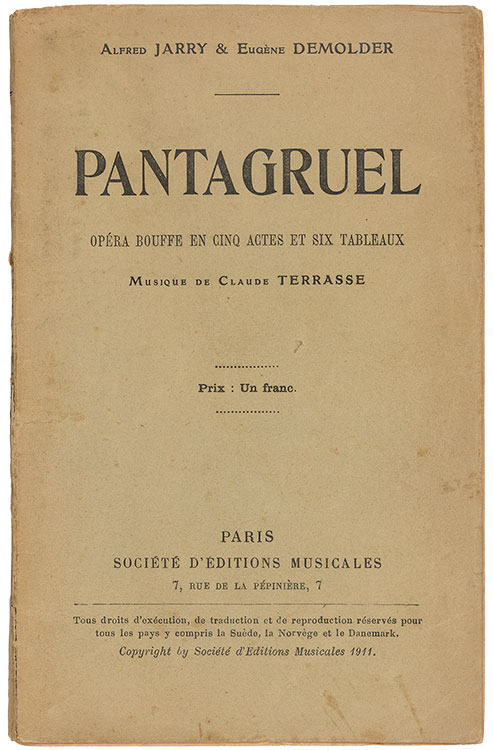
Characters in Jarry’s comic operas are empty vessels, similar to marionettes. As one scholar phrased it, the subject of these librettos is arguably language itself. Jarry’s paragon in the linguistic arts was François Rabelais. For eight years, Jarry labored to turn Rabelais’s Pantagruel into an operetta. By 1904, however, his health had declined, exacerbated by alcoholism and poverty. Pantagruel’s composer, Claude Terrasse, persistently pressed Jarry to make progress on the libretto. He lured the writer to his country house to help him dry out and finish the text, but neither plan was successful (a friend completed the libretto after Jarry’s death). The fanciful baroque sets and costumes used in its 1911 premiere proved to be the antithesis of the anti-naturalist mise-en-scène that defined Jarry’s career.
Alfred Jarry (1873–1907) and Eugène Demolder (1862–1919), Pantagruel: Opéra-bouffe en cinq actes et six tableaux, musique de Claude Terrasse (Paris: Société d’éditions musicales, 1911). The Morgan Library & Museum, gift of Robert J. and Linda Klieger Stillman, 2017. PML 197036.
